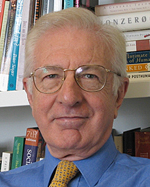
Elizabeth Webb
Elizabeth Webb is a lecturer in gerontology at the University of Southampton, a member of the ESRC’s International Centre for Lifecourse Studies and principal investigator of an ESRC grant to investigate causes and consequences of caregiving in later life. She has an interest in older people’s physical capability and use of transport.
The National Institute for Health and Care Excellence (NICE) is consulting on new draft guidelines on environmental changes which should be made to support people to be physically active. The consultation caught my eye, since it directly relates to some ESRC funded research I recently published with colleagues.
The draft NICE guidelines state that local authorities should ensure pedestrian crossings give people with limited mobility enough time to cross the road. This is a laudable aim, however I want to emphasise that the current guidelines for crossing speeds don’t just disadvantage people who would be thought of as having limited mobility, but a large majority of the UK’s older population.
Continue reading →

 Louise Arseneault, Professor of Developmental Psychology at King’s College London, was appointed to the new role of ESRC Mental Health Leadership Fellow in autumn 2016.
Louise Arseneault, Professor of Developmental Psychology at King’s College London, was appointed to the new role of ESRC Mental Health Leadership Fellow in autumn 2016.